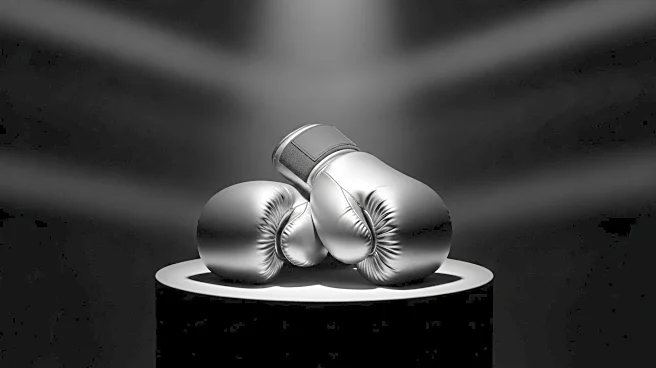What's Happening?
Conor McGregor, a prominent figure in the Ultimate Fighting Championship (UFC), has accepted an 18-month suspension due to a violation of anti-doping regulations. This decision follows an investigation that revealed McGregor's use of prohibited substances, which contravenes the UFC's strict anti-doping policies. The ban is a significant setback for McGregor, who has been a high-profile athlete in the sport, known for his charismatic personality and competitive prowess. The suspension will prevent him from participating in any UFC events during this period, impacting his career and the sport's dynamics.
Why It's Important?
The suspension of Conor McGregor is a critical development in the UFC, highlighting the organization's commitment to maintaining a clean and fair competitive environment. This action underscores the importance of adhering to anti-doping regulations, serving as a reminder to athletes about the consequences of violations. The ban could have financial implications for McGregor, affecting sponsorships and earnings from fights. Additionally, it may influence the UFC's marketability, as McGregor is one of its most recognizable figures. The decision reinforces the UFC's stance on integrity and fairness in sports.
What's Next?
During the suspension period, McGregor will be unable to compete, which may lead to shifts in the UFC's competitive landscape. Other fighters may seize the opportunity to rise in prominence, potentially altering rankings and matchups. McGregor's team might focus on preparing for a strong comeback post-suspension, possibly involving strategic planning and training. The UFC will continue to monitor compliance with anti-doping regulations, ensuring that all athletes adhere to the established standards. Fans and stakeholders will be watching closely to see how McGregor's absence affects the sport.
Beyond the Headlines
This incident raises broader questions about the prevalence of doping in sports and the measures in place to combat it. The UFC's handling of McGregor's case may set a precedent for future violations, influencing how similar situations are addressed. It also highlights the ethical responsibilities of athletes to compete fairly and the role of governing bodies in enforcing regulations. The situation may prompt discussions about the pressures athletes face and the support systems available to help them navigate their careers without resorting to prohibited substances.










